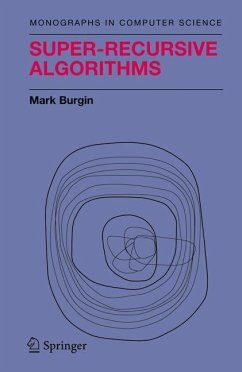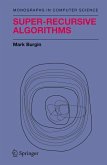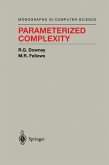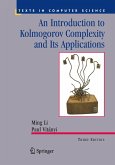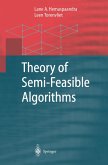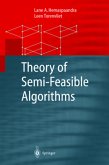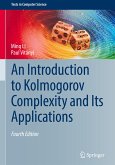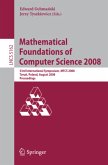Super-Recursive Algorithms provides an accessible, focused examination of the theory of super-recursive algorithms and its ramifications for the computer industry, networks, artificial intelligence, embedded systems, and the Internet. The book demonstrates how these algorithms are more appropriate as mathematical models for modern computers, and how these algorithms present a better framework for computing methods in such areas as numerical analysis, array searching, and controlling and monitoring systems. In addition, a new practically-oriented perspective on the theory of algorithms, computation, and automata, as a whole, is developed. Problems of efficiency, software development, parallel and distributed processing, pervasive and emerging computation, computer architecture, machine learning, brain modeling, knowledge discovery, and intelligent systems are addressed. This clear exposition, motivated by numerous examples and illustrations, serves researchers and advanced students interested in theory of computation and algorithms.
From the reviews:
"This book provides an examination of the theory of super-recursive algorithms and its ramifications for the computer industry, networks, artificial intelligence, embedded systems, and the Internet. ... The exposition of the book is motivated by numerous examples and illustrations. It serves to develop a new paradigm for complex, high-performance computing based on both partial recursive functions and more inclusive recursive algorithms."
(Vilmar Trevisan, Zentralblatt MATH, Vol. 1070, 2005)
"This important, exciting book synthesizes all ... isolated 'heresies' from the journal literature into a new, lively, coherent discipline. Beyond obvious interest to mathematicians and computer scientists, the book should attract physicists and philosophers. ... Chapters here on recursive and even subrecursive algorithms provide background and context sufficient to render this book reasonably self-contained. Summing Up: Highly recommended. General readers; lower-division undergraduates through professionals."
(D. V. Feldman, CHOICE, Vol. 42 (11), July, 2005)
"This new book by Mark Burgin, Super-recursive algorithms, covers a wide variety of computational models. ... I can say that reading the book gives pleasure to the reader interested in understanding what is going on in the so-called hypercomputation community. ... the book might also be interesting from the point of view of the philosophy of computational science. ... The book provides valuable information ... ."
(José Félix Costa, Mathematical Reviews, Issue 2008 f)
"This book provides an examination of the theory of super-recursive algorithms and its ramifications for the computer industry, networks, artificial intelligence, embedded systems, and the Internet. ... The exposition of the book is motivated by numerous examples and illustrations. It serves to develop a new paradigm for complex, high-performance computing based on both partial recursive functions and more inclusive recursive algorithms."
(Vilmar Trevisan, Zentralblatt MATH, Vol. 1070, 2005)
"This important, exciting book synthesizes all ... isolated 'heresies' from the journal literature into a new, lively, coherent discipline. Beyond obvious interest to mathematicians and computer scientists, the book should attract physicists and philosophers. ... Chapters here on recursive and even subrecursive algorithms provide background and context sufficient to render this book reasonably self-contained. Summing Up: Highly recommended. General readers; lower-division undergraduates through professionals."
(D. V. Feldman, CHOICE, Vol. 42 (11), July, 2005)
"This new book by Mark Burgin, Super-recursive algorithms, covers a wide variety of computational models. ... I can say that reading the book gives pleasure to the reader interested in understanding what is going on in the so-called hypercomputation community. ... the book might also be interesting from the point of view of the philosophy of computational science. ... The book provides valuable information ... ."
(José Félix Costa, Mathematical Reviews, Issue 2008 f)

